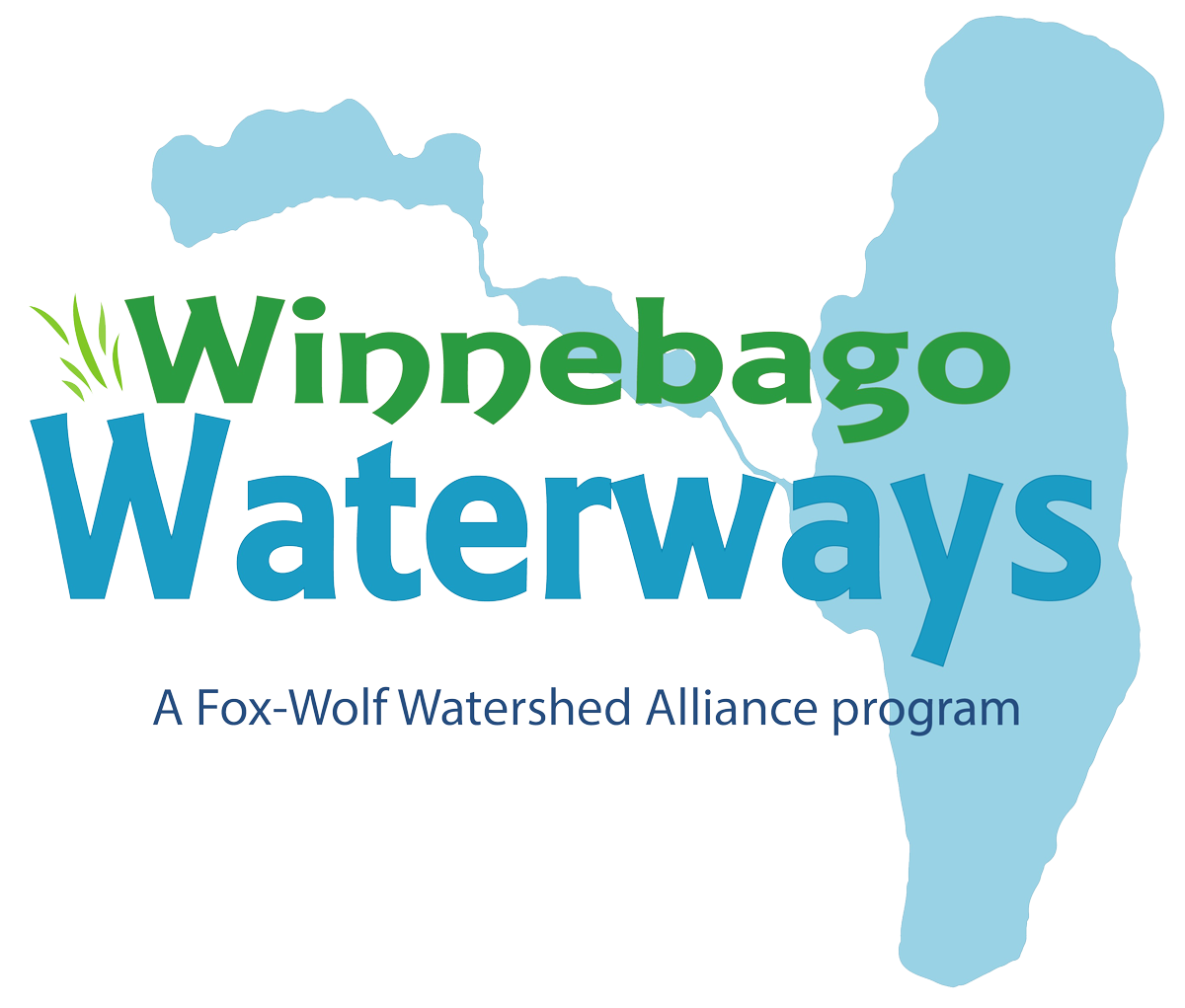AIS Snapshot Day 2023; 115 volunteers Search 102 Different Waterbodies
Original Story: Water Action Volunteers
On August 19th, 2023, water lovers of all ages gathered for a one-day statewide aquatic invasive species (AIS) scavenger hunt as a part of the 10th annual AIS Snapshot Day. This event is coordinated by UW Extension in partnership with River Alliance, the Wisconsin Department of Natural Resources (WDNR), and 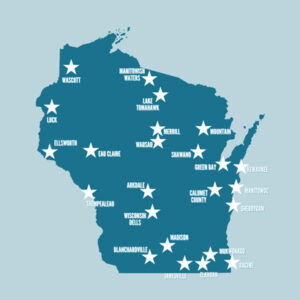 Extension Lakes. Volunteers met at different local rendezvous sites across the state to learn how to identify AIS such as Eurasian watermilfoil, purple loosestrife, and New Zealand mudsnails, and then searched for them in the field at pre-
Extension Lakes. Volunteers met at different local rendezvous sites across the state to learn how to identify AIS such as Eurasian watermilfoil, purple loosestrife, and New Zealand mudsnails, and then searched for them in the field at pre-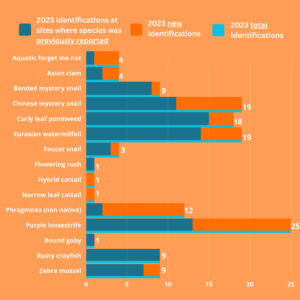 selected locations. Initially focused on rivers and streams, Snapshot Day has expanded to include lakes and wetlands. Findings from Snapshot Day are uploaded to the statewide water quality database, SWIMS, where they can be used to track the spread of invasive species and develop management plans.
selected locations. Initially focused on rivers and streams, Snapshot Day has expanded to include lakes and wetlands. Findings from Snapshot Day are uploaded to the statewide water quality database, SWIMS, where they can be used to track the spread of invasive species and develop management plans.
Every year, Snapshot Day provides a vast amount of AIS data to the WDNR to assist in management decisions, and this year was no exception! 145 participants gathered across 22 meeting locations and monitored 131 sites across 102 different waterbodies in Wisconsin. 48 of those waterbodies had no AIS detected. At 83 sites, volunteers located 15 different AIS species, including purple loosestrife, curly-leaf pondweed, Asian clams/freshwater golden clams (Corbicula), and faucet snails.
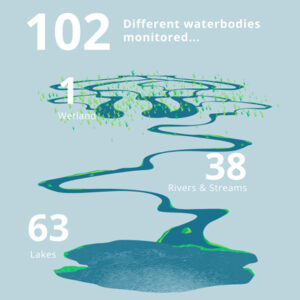 Snapshot Day’s community-based science approach maximizes the number of sites being checked across the state, and the free event allows volunteers to learn about their local waters and how to keep them healthy. As one volunteer stated, “I enjoyed the hands on learning approach. It was helpful to have well informed guides and samples of the invasive species to get a close look at. Once we had a good understanding of what to look for, it was fun to go out and collect samples of what we were finding.”
Snapshot Day’s community-based science approach maximizes the number of sites being checked across the state, and the free event allows volunteers to learn about their local waters and how to keep them healthy. As one volunteer stated, “I enjoyed the hands on learning approach. It was helpful to have well informed guides and samples of the invasive species to get a close look at. Once we had a good understanding of what to look for, it was fun to go out and collect samples of what we were finding.”
We would like to extend a HUGE thank you to all of the volunteers, partner organizations, and site leaders who made this event possible.
And don’t forget to follow Snapshot Day on Facebook for future updates! https://www.facebook.com/aissnapshotday
Photo Credit: Chris Acy (Fox-Wolf), Emily Heald (Water Action Volunteers)
Questions? Comments? Contact Chris Acy, the AIS Coordinator covering Brown, Outagamie, Fond du Lac, Calumet, and Winnebago Counties at (920) 460-3674 or chris@fwwa.org!
Follow the Fox Wolf Watershed Alliance’s Winnebago Waterways Program on our Winnebago Waterways Facebook page or @WinnWaterways on X! You can also sign-up for email updates at WinnebagoWaterways.org.
Check out the Keepers of the Fox Program at https://fwwa.org/watershed-recovery/lower-fox-recovery/
Winnebago Waterways and Keepers of the Fox are Fox-Wolf Watershed Alliance programs. The Fox-Wolf Watershed Alliance is an independent nonprofit organization working to protect and restore water resources in the Fox-Wolf River Basin.
Reporting invasive species is a first step in containing their spread. Maintaining and restoring our waters and landscapes can reduce the impacts even when we don’t have other management options to an invasive species.
The post AIS Snapshot Day 2023; 115 volunteers Search 102 Different Waterbodies appeared first on Fox-Wolf Watershed Alliance.
Fox-Wolf Watershed Alliance
https://fwwa.org/2023/09/25/ais-snapshot-day-2023-115-volunteers-search-102-different-waterbodies/?utm_source=rss&utm_medium=rss&utm_campaign=ais-snapshot-day-2023-115-volunteers-search-102-different-waterbodies


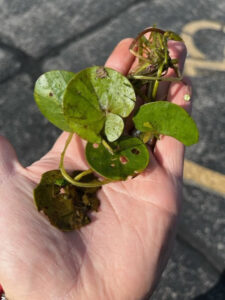 invasive species in the Bay of Green Bay.
invasive species in the Bay of Green Bay. 